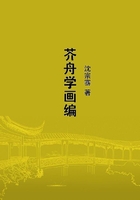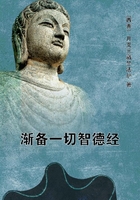To untie these knots, Sir Henry Bulwer was sent to Washington to negotiate with John M.Clayton, President Taylor's Secretary of State.Neither of these negotiators was of the caliber of Webster and Ashburton, and the treaty which they drew up proved rather a Pandora's box of future difficulties than a satisfactory settlement.In the first place it was agreed that any canal to be constructed over any of the isthmuses was to be absolutely neutral, in time of war as well as of peace.Both nations were to guarantee this neutrality, and other nations were invited to join with them.No other nations did join, however, and the project became a dual affair which, owing to the superiority of the British Navy, gave Britain the advantage, or would eventually have done so if a canal had been constructed.Subsequently the majority of Americans decided that such a canal must be under the sole control of the United States, and the treaty then stood as a stumbling block in the way of the realization of this idea.
More immediately important, however, and a great wrench to American policies, was the provision that neither power "will ever erect or maintain any fortifications commanding" the canal "or occupy, or fortify, or colonize, or assume or exercise any dominion over...any part of Central America." This condition violated Adams's principle that the United States was not on the same footing with any European power in American affairs and should not be bound by any self-denying ordinance, and actually it reversed the principle against the United States.An explanatory note accompanying the treaty recognized that this provision did not apply to Belize and her dependencies, and Great Britain promptly denied that it applied to any rights she already possessed in Central America, including the Mosquito protectorate and certain Bay Islands which were claimed by Great Britain as dependencies of Belize and by Honduras as a part of her territory.
In vain did Webster, who succeeded Clayton, seek an agreement.
His term of office passed, and the controversy fell into the hands of Lord Palmerston, the jingoistic spirit who began at this time to dominate British foreign policy, and of James Buchanan, who, known to us as a spineless seeker after peace where there was no peace, was at this time riding into national leadership on a wave of expansionist enthusiasm.Buchanan and Palmerston mutually shook the stage thunder of verbal extravagance, but probably neither intended war.Poker was at this time the national American game, and bluff was a highly developed art.The American player won a partial victory.In 1856 Great Britain agreed to withdraw her protectorate over the Mosquitoes, to acknowledge the supremacy of Honduras over the Bay Islands, and to accept a reasonable interpretation of the Belize boundary.
Though this convention was never ratified, Great Britain carried out its terms, and in 1860 Buchanan announced himself satisfied.
The dreams of 1850, however, were not satisfied.A railroad was completed across Panama in 1855, but no canal was constructed until years after the great transcontinental railroads had bound California to the East by bonds which required no foreign sanction.Yet the Clayton-Bulwer Treaty remained an entangling alliance, destined to give lovers of peace and amity many more uncomfortable hours.
During the Civil War other causes of irritation arose between the United States and Great Britain.The proclamation of neutrality, by which the British Government recognized the Confederacy as a belligerent, seemed to the North an unfriendly act.Early in the war occurred the Trent affair, which added to the growing resentment.* It was held to be a violation of professed neutrality that Confederate commerce destroyers were permitted to be built and fitted out in British yards.The subsequent transfer of hundreds of thousands of tons of American shipping to British registry, owing to the depredations of these raiders, still further incensed the American people.It was in the midst of these strained relations that the Fenian Brotherhood in the United States attempted the invasion of Canada.















